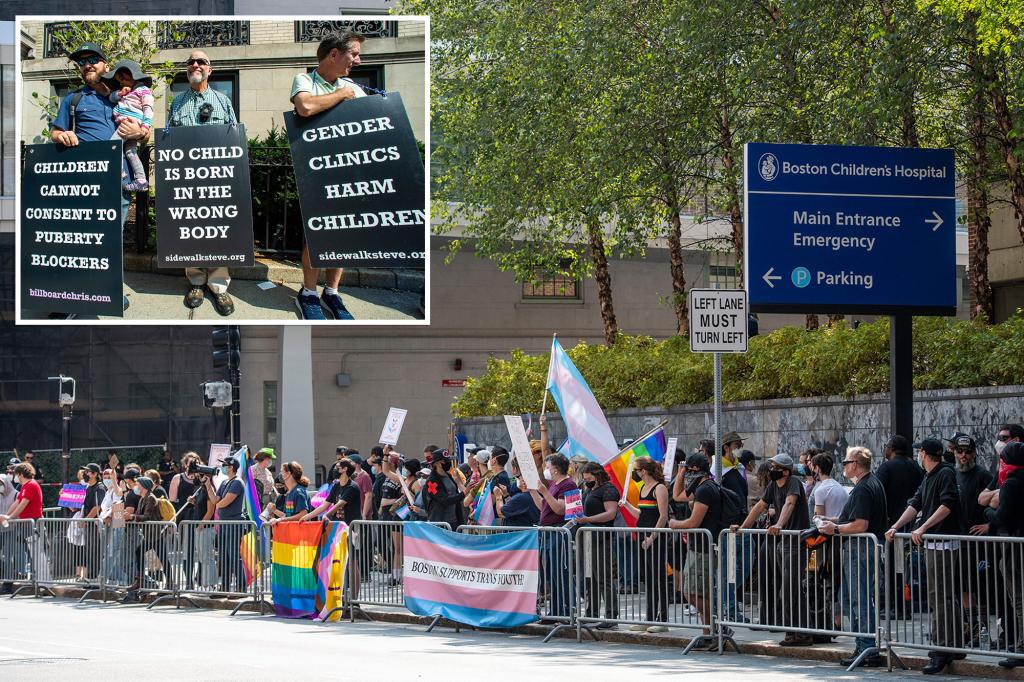A former employee of Boston Children’s Hospital has accused the renowned facility of drastically reducing the consultation time required before children receive gender transition treatment for age and gender-based discrimination. Dr. Amy Tishelman, once a champion for pediatric gender medicine, was fired in 2021 after raising concerns about the hospital’s policy changes in pre-treatment care. Tishelman testified that the hospital reduced the assessment time from 20 hours to just two hours, which she described as “reckless,” leading to her termination on allegations of violating patient privacy laws. She believes she was fired in retaliation for speaking out.
The reduction in assessment time at Boston Children’s Hospital came as part of a controversial change in policy regarding gender transition treatment for minors. Tishelman was initially given 20 hours for therapy and interviews with patients before making a treatment recommendation, a timeframe that was later cut to just two hours. The drastic reduction in the required time for assessment raised concerns about the quality of care provided to “gender-distressed” children seeking treatment. Tishelman voiced her objections to the changes, highlighting the importance of careful consideration and thorough evaluation before initiating treatment.
A major report on puberty blockers from The New York Times further fueled the debate on pediatric gender transition treatment, revealing that hormones were not associated with psychological benefits in patients. The study’s leading investigator refrained from publishing the findings due to concerns about the potential political manipulation of the data. Meanwhile, a trial at Boston Children’s Hospital highlighted the lack of long-term research on the outcomes of children undergoing gender transition treatment, with results showing no improvement in mental health two years post-treatment.
Boston Children’s Hospital has faced criticism and controversy over its approach to pediatric gender transition treatment in the past. The hospital made headlines in 2007 when it became the first clinic in the US to offer such procedures, following the pioneering work done in the Netherlands. Recent incidents, including false claims of performing hysterectomies on minors and inappropriate statements about gender identity, have sparked outrage and threats against the facility. Despite these challenges, the hospital maintains strict guidelines that surgical interventions are only provided to adults over the age of 18.
The contentious issue of pediatric gender transition treatment has stirred debate among lawmakers and the public, leading to calls for further investigations and scrutiny of federal grant funding for related studies. The suppressed findings of a National Health Institute study on puberty blockers raised questions about the effectiveness and potential risks associated with these treatments. The reluctance of researchers to publish their results due to concerns about political backlash underscores the complexity and sensitivity of the issue. As controversies continue to emerge, the need for evidence-based guidelines and comprehensive long-term studies in pediatric gender medicine remains a pressing concern.
In conclusion, the lawsuit against Boston Children’s Hospital reflects broader concerns about the care and treatment of gender-distressed children seeking gender transition interventions. The reduction in pre-treatment assessment time, the lack of long-term follow-up studies, and the suppression of key research findings underscore the complexities and controversies surrounding pediatric gender medicine. As stakeholders grapple with ethical, medical, and legal considerations, the need for transparency, accountability, and evidence-based practices in pediatric gender transition treatment remains paramount. Boston Children’s Hospital and other healthcare providers must navigate these challenges with a focus on patient well-being, informed consent, and ethical standards to ensure the best possible outcomes for children and families seeking gender-affirming care.


